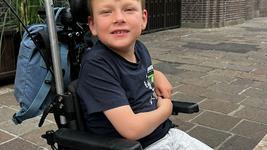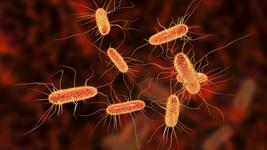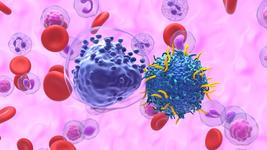Clinical Trial Update: Beam Therapeutics Doses First Patient With Base-Editing Cancer Therapy
CMN Intelligence - The World’s Most Comprehensive Intelligence Platform for CRISPR-Genomic Medicine and Gene-Editing Clinical Development
Providing market intelligence, data infrastructure, analytics, and reporting services for the global gene-editing sector. Read more...
Beam Therapeutics announced in a press release published yesterday that the first patient had been dosed with its candidate base-editing therapy BEAM-201 in August. This milestone marks the first individual to be dosed with one of Beam Therapeutics' candidate therapies, and the first patient in the United States to be dosed with a base-editing therapeutic.
BEAM-201 is a quadruplex-edited allogeneic CAR-T cell investigational therapy that is being developed for the treatment of relapsed or refractory T-cell acute lymphoblastic leukaemia/T-cell lymphoblastic lymphoma (T-ALL/T-LL).
T-ALL/T-LL is a highly aggressive form of blood cancer that originates from transformed T cells, and for which treatment options are very limited.
BEAM-201 is currently being evaluated in a Phase 1/2 multicenter, open-label study that aims to enrol 102 eligible adults and children with CD7-positive T-ALL/T-LL. The study consists of Phase 1 dose-exploration cohorts, Phase 1 dose-expansion cohort(s), a Phase 1 paediatric cohort (to enrol patients ages 1 to < 12 years after health authority approval), and a Phase 2 cohort.
Ex vivo base-edited donor T cells
BEAM-201 is an anti-CD7 CAR-T cell therapy candidate, which undergoes multiplex base editing to eliminate expression of the CD7, TRAC, PDCD1 and CD52 genes. Base editor mRNA and 4 single-guide RNAs that each target one of the aforementioned genes are delivered to healthy donor T cells via a single electroporation step, and the edited cells are then infused into patients.
What do all these edits do?
CD7 is a transmembrane protein that is naturally expressed on the surfaces of thymocytes and mature T cells. It is seen as an attractive target for immunotherapy of T-ALL/T-LL as well as acute myeloid leukaemia due to its widespread distribution on these cancers. BEAM-201 cells express a CD7-targeting CAR that is designed to target CD-7 expressing cells. To avoid T cell fratricide, i.e., a situation whereby the CAR-T cells target each other, BEAM-201 cells are base-edited to silence CD7.
TRAC disruption blocks endogenous TCR-mediated signalling, which enables the safe use of allogeneic T cells as the source of CAR-T without inducing life-threatening graft-versus-host disease (GvHD).
PDCD1 disruption eliminates the expression of the checkpoint inhibitor protein, PD-1. PD-1 and its ligand programmed cell death ligand 1 (PD-L1) are immune checkpoint proteins expressed on the surface of T cells. Under physiological conditions their interaction results in T cell immune suppression, but cancer cells can hijack this pathway to escape immune detection. However, this can be reversed by blocking PD-1’s interaction with PD-L1, in this case, through PDCD1 disruption.
CD52 disruption renders BEAM-201 cells resistant to therapeutic anti-CD52 monoclonal antibodies, which are used during lymphodepletion to reduce host rejection of allogeneic cells.
The BEAM-201 trial
The primary objectives of the Phase 1 portion of the BEAM-201 trial are to assess safety, tolerability, and identification of the recommended Phase 2 dose and lymphodepletion regimen.
Key safety endpoints for the trial include treatment-emergent and treatment-related adverse events, and key efficacy endpoints include proportion of patients with complete or partial responses, proportion eligible for haematopoietic stem cell transplantation, and proportion of patients achieving minimal residual disease negative status.
Multiple sites for the Phase 1/2 clinical trial of BEAM-201 are now open for enrolment.
The estimated primary completion date (the date on which the last participant is expected to receive treatment), and study completion date (the date on which the last participant is expected to examined or receive a treatment to collect final data) for the BEAM-201 trial is December 2031.
We will provide further updates about BEAM-201 as they emerge.
For a complete overview of current gene editing clinical trials, check out CRISPR Medicine News' Clinical Trials Database.
To get more CRISPR Medicine News delivered to your inbox, sign up to the free weekly CMN Newsletter here.
Tags
ArticleNewsClinical News UpdatesAcute Lymphoblastic Leukemia, ALLAcute Myeloid Leukemia, AMLT-Cell LymphomaCancerCAR-TBase editorsBeam Therapeutics Inc.
CLINICAL TRIALS
Sponsors:
Base Therapeutics (Shanghai) Co., Ltd.
Sponsors:
Base Therapeutics (Shanghai) Co., Ltd.







